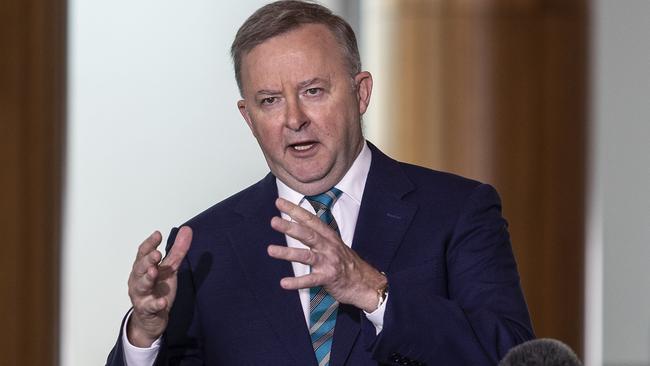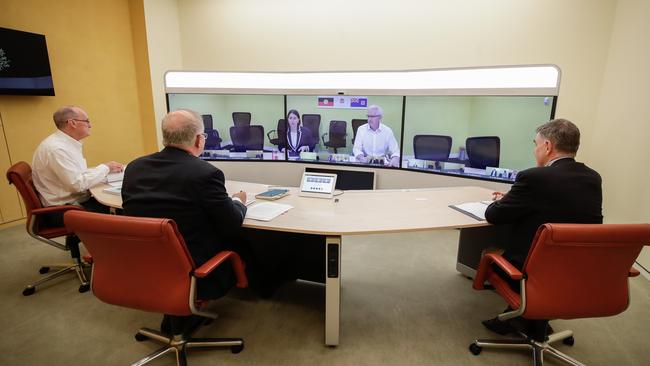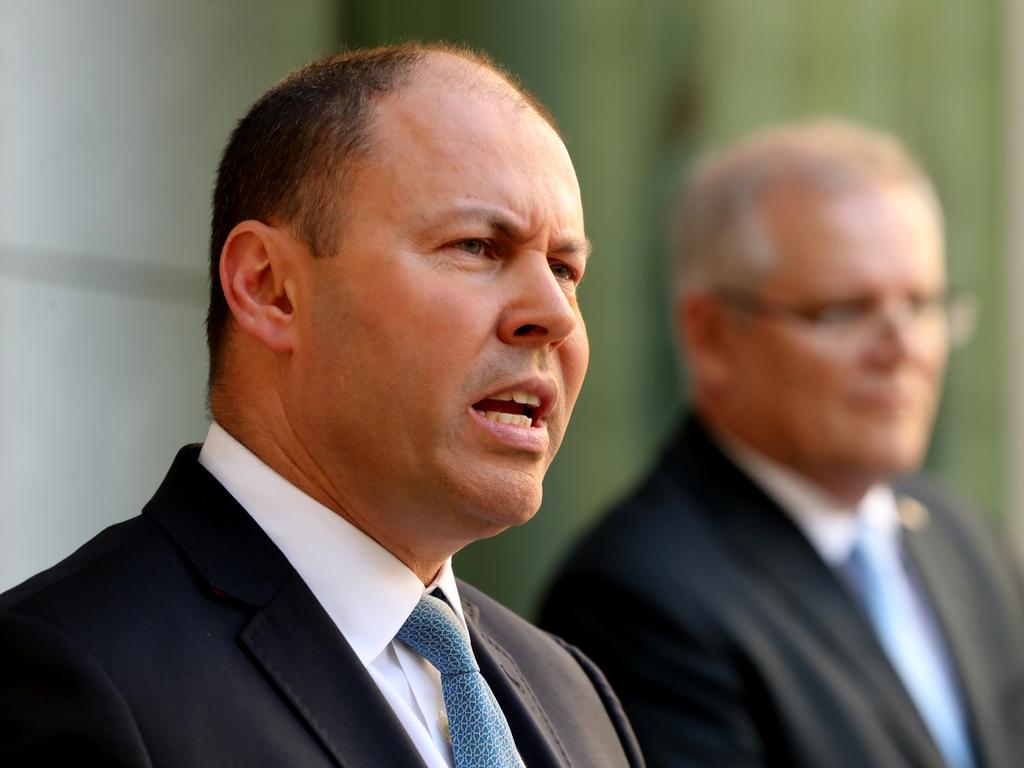
Albanese, accepting he has been shut out permanently, has ramped up his attacks on the cabinet and the government’s response to the worst pandemic in a century.
The national cabinet, announced on March 13, is an important innovation in our governance. Scott Morrison described it as a standing “national co-ordinating mechanism” for the “national response to the coronavirus”. It evolved from the Council of Australian Governments and includes the Prime Minister, six premiers and two chief ministers.
It is a streamlined executive body (free of the cumbersome COAG processes), where heads of governments meet regularly via video conference. There is, as Morrison says, a “strong sense of unity, co-operation and purpose”. The aim is to work together while respecting that each government is “completely sovereign and autonomous” in decision-making.

Yet Albanese, while not opposed to the national cabinet, has dismissed it as “really just phone hook-ups of COAG”. It is much more important than that. It is reassuring that the nine governments are working together. This is, after all, what most voters want from politicians. It is politically risky for Albanese to diminish the national cabinet and overly criticise the COVID-19 response.
A cabinet is an institution governed by Westminster convention and historical precedent. It is traditionally a collection of the most senior members of the ministry. But the national cabinet draws on the ethos of this arrangement by acting as an executive body that is the fulcrum of joined-up government. It will establish a precedent for responding to future crises.
Albanese argues that war cabinets have always involved the government and opposition parties. “A national cabinet would involve representation from the opposition,” he said a fortnight ago. “Any time there’s been that form of national cabinet or war cabinet, that’s the way it has operated.”
This is wrong. Albanese has never had a particularly good grasp of history. Robert Menzies announced the formation of a war cabinet on September 15, 1939. It was constituted with six ministers to make major decisions concerning Australia’s response to World War II. Menzies repeatedly asked Labor leader John Curtin to join. Winston Churchill’s war cabinet included several British Labour MPs, and Clement Attlee was made deputy prime minister. Curtin refused to join an all-party government of national unity, with representation in the war cabinet, because Labor could not fully support the United Australia Party in its approach to the war. Some thought this a mistake.
But Curtin knew that a government had to be able to unite behind a common set of political and policy principles, and this was not possible.
Curtin also knew Menzies’s leadership was tenuous and there was not complete unity within the UAP or the Country Party. Two years later, in 1941, Menzies resigned as prime minister and the government led by Arthur Fadden lost its majority. Curtin was sworn in as prime minister. The upshot is that Curtin did not feel he could join a national cabinet given he disagreed with the war strategy.
This is what Albanese does not comprehend. He has diminished the national cabinet that he wants to join. He and other Labor frontbenchers also have attacked the government’s health and economic strategy in response to COVID-19. And Albanese has criticised Morrison directly. “People out there … don’t have confidence in the certainty of the announcements that are being made,” he said last week.
Albanese fails to understand that his opposition to the government’s pandemic response means he cannot join the national cabinet. Cabinets are supposed to be unified and its members bound by solidarity and confidentiality. This is the principled position that Curtin took in World War II.
But Curtin did offer Menzies wartime co-operation. The Labor leader and three others from his party joined the Advisory War Council, established on October 21, 1940. It was an extraordinary group that at various stages included nine former, current or future prime ministers. Members were provided with confidential briefings and robust discussion was encouraged.
There was mutual admiration and respect between Curtin and Menzies. They often met for a cup of tea. They wrote letters in glowing terms about the support they gave each other. On Monday, Morrison announced he would have a weekly meeting with Albanese. This is a respectful and encouraging gesture, but I doubt the criticism of the government will subside.
Albanese’s strategy is obvious: he is laying down markers to be able to criticise Morrison’s leadership more heavily when this pandemic is over. By criticising the public health and economic response now, he is hoping it will pay a dividend later if public opinion turns against the government. This is risky and not everybody on Labor’s frontbench thinks it is the right approach.
Morrison, nevertheless, has bipartisan co-operation from some in Labor. There has been no public criticism from Labor premiers about the national cabinet, only praise. All premiers and chief ministers have welcomed the sharing of information and discussions about appropriate policy responses and are helping to co-ordinate the COVID-19 response.
There is a further initiative that Morrison should consider to reinforce bipartisanship: call on former prime ministers to advise on a post-pandemic reconstruction plan. It could assist Neville Power’s National COVID-19 Co-ordination Commission. Why not call John Howard and Julia Gillard back to public service? This would be another welcome step towards building national unity.








Anthony Albanese desperately wants to be part of the national cabinet to co-ordinate the response to COVID-19. Who says limelight-deficiency syndrome affects only former politicians?